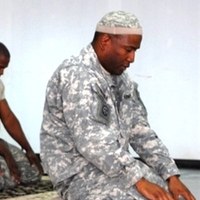![]()
RubinReports | By Barry Rubin

Secretary of State Hillary Clinton raised eyebrows at the weekend with comments in Tunisia predicting that President Obama would be re-elected, but less attention was given to the context of her remark--which came in reply to a question about U.S. presidential candidates pandering to "Zionist lobbies."
Sometimes a secretary of state is asked tough questions. How they are answered shows the underlying philosophy of official and government. I genuinely don’t want to make too much out of a single exchange between Secretary of State Hillary Clinton and a Tunisian audience. Yet the problem is how the approach she took fits into consistent themes of the Obama Administration.
Whatever Clinton tried to do when talking to a group of young Tunisians (video here), it’s also important to consider how her audience interpreted her statement. Either they thought she was saying that the United States doesn’t really support Israel or they thought that she was telling them a transparent lie that made them more suspicious. Or both of the above.
The exchange also fits with Obama’s own statement to Russian leaders who wants America to get rid of much of its nuclear arsenal, that elections are a nuisance that will only temporarily interfere with him doing what his government — and his interlocutor, too — wants him to do.
Question: “After the electoral campaign start[ed] in the United States…we noticed here in Tunisia that most of the candidates from the both sides run towards the Zionist lobbies to get their support in the States. And afterwards, once they are elected, they come to show their support for countries like Tunisia and Egypt for a common Tunisian or a common Arab citizen. How would you reassure and gain his trust again once given the fact that you are supporting his enemy as well at the same time?”
This question has several significant factors. First, it assumes, as is typical in Arabic-speaking countries, that the Israel issue is a zero-sum game and that Israel is an enemy. One has to be for one side or the other. Second, it assumes that the United States is really hostile toward the Arabs because it supports Israel, indeed it is hinted that Zionists run America. Third, it suggests that America is lying to the Arabs about this and consequently about much else, too.
What Clinton did, however, was to reinforce all of these problems because, basically, she tried to propitiate her audience by lying to them. And they are not so stupid as to miss the fact that she lied to them. In doing so, she undermined supposed U.S. policy and encouraged the continuation of extremism and conflict in the region.
Here’s her answer:
Secretary Clinton: “Well, first, let me say you will learn as your democracy develops that a lot of things are said in political campaigns that should not bear a lot of attention. There are comments made that certainly don’t reflect the United States, don’t reflect our foreign policy, don’t reflect who we are as a people. I mean, if you go to the United States, you see mosques everywhere, you see Muslim Americans everywhere. That’s the fact. So I would not pay attention to the rhetoric.
“Secondly, I would say watch what President Obama says and does. He’s our President. He represents all of the United States, and he will be reelected President, so I think that that will be a very clear signal to the entire world as to what our values are and what our President believes. So I think it’s a fair question because I know that — I sometimes am a little surprised that people around the world pay more attention to what is said in our political campaigns than most Americans, say, are paying attention. So I think you have to shut out some of the rhetoric and just focus on what we’re doing and what we stand for, and particularly what our President represents.”
Here is her basic answer then: Ignore what these people say, they are just shooting off their mouths to get votes. Actually, we love Muslims. And Obama sets U.S. policy, which is true but implies that while those turkeys are pro-Israel Obama is pro-Arab, which means — in a zero-sum game context — anti-Israel.
Or to sum up, when it comes to Israel we’re on your side.
What makes this behavior especially ironic is that it contradicts many of the points Clinton had made to these young people only moments earlier. For example, “I think that certainly you judge political parties both by what they say and what they do.” Also, “I think that one of the biggest problems we have in the world today is people not respecting the views of others.” In effect, after trying to teach Tunisians about democracy Clinton demeaned American democracy.
Since she was speaking to young people, supposedly the hope of a new Tunisia, advocates of hi-tech and hip, cosmopolitan values, shouldn’t she have used this as a teachable moment? I don’t think you are going to have a successful moderate democracy alongside a worldview calling for genocide against the demonic Jews. And avoiding the question is not cementing pro-American feeling precisely because the hi-tech savvy audience — which, by the way, seemed to be rather carefully screened to let in only the most liberal Tunisians — knows what goes on in the United States.
How should Clinton have answered? By using accepted U.S. diplomatic language: We favor a two-state solution. We believe that Israel has a right to exist. We believe that everyone would benefit by a negotiated, just, and lasting peace. We think that your true enemies are poverty and dictatorship.
Clinton isn’t fooling anyone in Tunisia. By adopting their framework she is encouraging more anti-Americanism than if she’d have answered the question honestly. And, after all, she didn’t answer the question at all. The young person wanted to know: How can you support Israel, our enemy, and then come here and pretend to be our friend?
Her answer implies: Oh we don’t support Israel. That’s just meaningless campaign rhetoric.
In the framework of her talk promoting modernization, democracy, respect for other’s rights, hi-tech, and a new generation of young people changing the world, Clinton could have indicated that this hatred should also change, that it was blocking progress, that it was dragging people into more war and violence. Getting over an irrational, hysterical hatred of Israel is also a necessary part of entering a modern, post-dictatorial era. And don’t kid yourself, the hatred of America is just as strong and just as big a problem based on a variety of reasons that go far beyond the Israel issue.
You might understandably protest that Clinton didn’t want to say anything her audience didn’t agree with. But she did so on other issues, for example asserting the rights of homosexuals and transsexuals, an idea not likely to be popular in Tunisia.
Only Israel gets thrown under the bus. Does Clinton really want to suggest that those who support Israel “don’t reflect the United States, don’t reflect our foreign policy, don’t reflect who we are as a people”? Does she want to imply that people who support Israel hate Muslims but we’re not like that because we have lots of mosques and happy Muslims? Has she ever seen the anti-American interviews, full of lies by the way, that American Islamists give on Arabic television?
Moreover, Clinton also did something a secretary of state should never do, subordinated U.S. interests to partisan considerations. Everything’s ok, she said, because Obama is president. But what if Obama isn’t president after January 20, 2013? She suggested that if the Republicans are in office Arabs and Muslims should then regard America, no longer under the rule of their friend Obama, as an enemy.
Her approach is also a mistake because it accepts a fundamental inequality, the revolutionary Islamist and Arab nationalist view that the West is inferior and illegitimate. Clinton’s response reminds me of what President John Kennedy warned against: accepting that what’s yours is yours but what’s mine is negotiable.
After all, if Tunisians have a right to elect a government led by Islamist radicals who hate America — though Clinton is willing to take those people’s word that they are really moderates — don’t Americans have the right to be pro-Israel?
But she didn’t do any of that. Of course, the secretary of state doesn’t want to set off an incident or make things worse by being provocative. But she took what she thought to be the easy way out yet is in fact the far harder and more dangerous road.
Clinton told a CNN interviewer later regarding the incident:
“Well, remember the context of it. I was asked whether the comments in the primary campaign, some of which have been quite inflammatory, represented America. And I represent America, and I know what happens in campaigns. I’ve been there, done that. And I know that things are said that are not going to be put into practice or policy. But I did think I needed to point that out to the audience. And probably, my enthusiasm for the president got a little out of hand.”
Nice. But she was not asked at all what she claims. The questioner didn’t refer to some “inflammatory” statement at all but to a general pronouncement of support for Israel as reflecting America. And the questioner was also obviously referencing past U.S. policy as well. In fact, explaining to disapproving Muslims that the United States does view Israel as an ally and isn’t ashamed to admit it has been a task of American diplomats for about four decades. In private, I know that some of them have tended to say some nasty things about politicians and the stupidity of Congress for having such a policy but it’s disconcerting to have a secretary of state imply such things in public.
As for her partisanship, it seems all too many journalists, teachers and others are letting their enthusiasm for the president get out of hand, trampling their professional obligations. As for Israel, if it gets in the way of Obama’s drive for popularity among Arabs and Muslims it apparently cannot expect much consideration.
Barry Rubin is director of the Global Research in International Affairs (GLORIA) Center and editor of the Middle East Review of International Affairs (MERIA) Journal. His book, “Israel: An Introduction“, has just been published by Yale University Press. Other recent books include “The Israel-Arab Reader” (seventh edition), “The Long War for Freedom: The Arab Struggle for Democracy in the Middle East” (Wiley), and “The Truth About Syria” (Palgrave-Macmillan). The website of the GLORIA Center and of his blog, Rubin Reports. His original articles are published at PJMedia.



 RSS
RSS










Latest Comments
Hello Mike, Thank you for your positive feedback to the article. I felt there wasn’t too much critical analysis of ...
Thanks for this considered and well constructed article. A follow up article on the manner in which the editorial contro...
THE CLUELESSNESS OF CLAIMING THAT OBAMA'S MIDDLE EAST POLICIES WERE A FAILURE CANNOT BE FURTHER FROM THE TRUTH, WHAT THE...
As long as Obama is the president of the usa do not trust the us government......
Thank you for an good read....